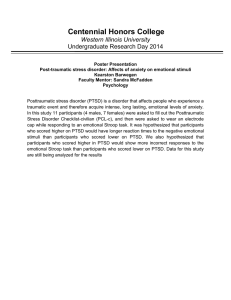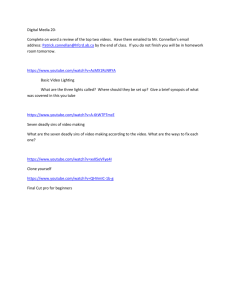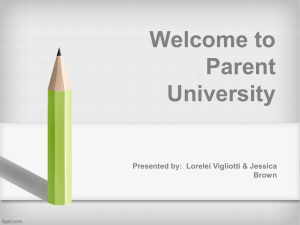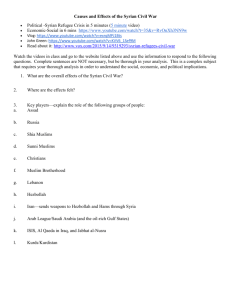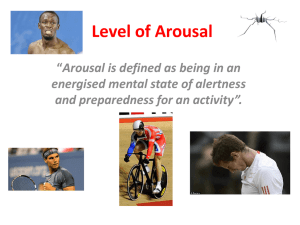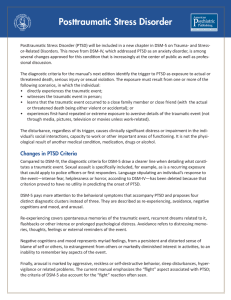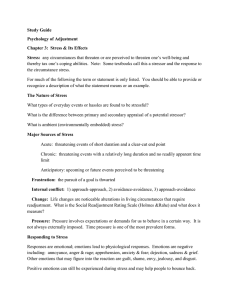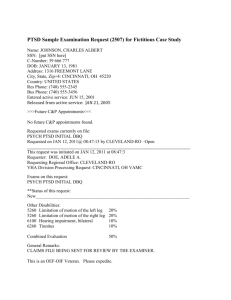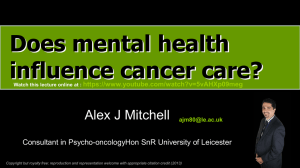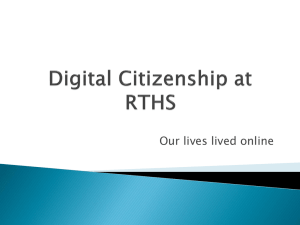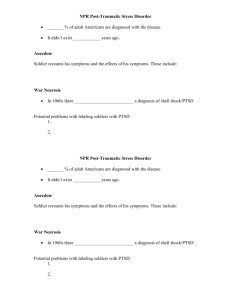PTSD Criteria and Case Study
advertisement
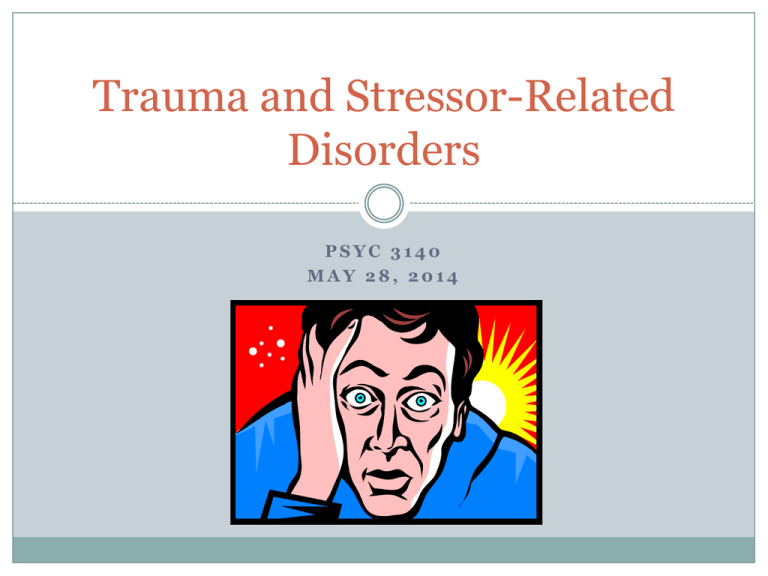
Trauma and Stressor-Related Disorders PSYC 3140 MAY 28, 2014 Stress and Stress-Responses Stressors: rush-hour, college graduation, poor health, tornado Stress-response to perceived threatening stressor: Arousal Fear: (physical) muscle tension, heart racing (emotional) horror, panic (cognitive) poor concentration, overestimation of threat Posttraumatic Stress Disorder: DSM-5 Checklist Exposure to actual or threatened death, serious injury, or sexual violation; exposure results from: 1. Direct experience Witnessing the event in-person Learning of the event occurring to a close loved one First-hand repeated or indirect exposure to aversive details of event Posttraumatic Stress Disorder: DSM-5 Checklist 2. One or more intrusive symptoms 3. Persistent avoidance of traumaassociated stimuli 4. Negative changes in cognitions and mood 5. Significant changes in arousal and reactivity 6. Significant distress and/or impairment; symptoms last more than 1 month Activity View selections of PTSD case study https://www.youtube.com/watch?v=ko6a3nNSonY https://www.youtube.com/watch?v=8fyf1LeX2nU https://www.youtube.com/watch?v=0bqLKXmdDuE https://www.youtube.com/watch?v=xnOLhXmhkyA Activity Small groups: Identify symptoms demonstrated in the video clips Brainstorm any additional PTSD-related symptoms displayed by Bruce Wayne/Batman (not shown in the clips) At-a-Glance PTSD Criteria 1. Exposure to traumatic event 2. Intrusions/re-experiencing 3. Avoid trauma-related stimuli 4. Cognition and mood changes 5. Arousal and reactivity changes 6. Impairing symptoms last > 1 month References American Psychiatric Association (2013). Posttraumatic stress disorder [Fact sheet]. Retrieved from http://www.dsm5.org/Documents/PTSD%20Fact%20Sheet.pdf Williams, S.T. (2012). ‘Holy PTSD, Batman!:’ An analysis of the psychiatric symptoms of Bruce Wayne. Academic Psychiatry, 36(3), 252-255. doi: 10.1176/appi.ap.36.3.252
